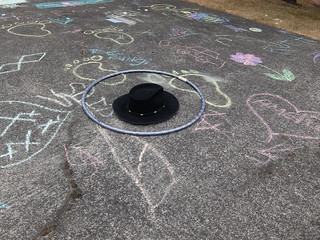In the Tractatus Logico-Philosophicus (TLP) Ludwig Wittgenstein draws a strong link between aesthetics and ethics. You'll find a similar association among engineers, with Ludwig on the edge of being one of those, perhaps in a software engineering sense.
Build something completely apropos for its task and beautiful it will be, because functionality screams purpose and meaning. But then the purpose itself might be ugly, such as an instrument of torture, or a guillotine say -- very functional.
Applewhite used to talk about science journalists getting away "with impunity" with their uglifications of philosophy, such as in that book A Most Beautiful Molecule, about BuckyBalls, by an author mostly ignorant of Synergetics (Bucky's magnum opus).
A similar ugliness pervades the art world, wherein the Concentric Hierarchy is scarcely mentioned, despite its being a set of paradigm relationships, a grammar for spatial thinking.
Imagine a computer science curriculum that only taught FORTRAN and never LISP. Popko's Divided Spheres helps compensate for what's missing in many a curriculum.
What we're seeing in this chapter is less a weakness in STEM than in STEAM, where the A adds Anthropology, more encompassing than Art. Anthropology embraces psychology, the study of the human mind.
Advertisers have learned to play on insecurities and adapted their technology to politics, with PR firms now running campaigns and managing inter-governmental relations. But has Anthropology been taken seriously in other dimensions? Yes and no.
The notion that Anthropology is always about studying "those other people" reeks of ugly philosophy, yet is a somewhat omnipresent attitude.
Solution: art schools have historically helped to provide an avant-garde, but mainly as networking tools among the truly creative. Here in Portland, I've had ample access to classrooms when it comes to sharing with people under twenty (yes, I'm fingerprinted and everything), reserving my andragogy (teaching of adults) to more on-line settings.
That mix may be about to change, as I access more workspaces ("maker spaces") and classrooms designed for adult topics and geared for adult DIY learning.
Given my karma (dharma), I'm already a resource for the Greater Portland area, as are my partners in "integral design" (Glenn's term for it). A lot of it's just storytelling, with history as a backdrop, technical content mixed in.
But then storytelling is an art, about leaving stuff out as irrelevant, as much as tuning stuff in as of vital importance.
In proving a successful role model for how to up the level of play in one city, with help from my friends and their group affiliations, I pioneer a path for others to not clone exactly, but at least learn from.
Build something completely apropos for its task and beautiful it will be, because functionality screams purpose and meaning. But then the purpose itself might be ugly, such as an instrument of torture, or a guillotine say -- very functional.
Applewhite used to talk about science journalists getting away "with impunity" with their uglifications of philosophy, such as in that book A Most Beautiful Molecule, about BuckyBalls, by an author mostly ignorant of Synergetics (Bucky's magnum opus).
A similar ugliness pervades the art world, wherein the Concentric Hierarchy is scarcely mentioned, despite its being a set of paradigm relationships, a grammar for spatial thinking.
Imagine a computer science curriculum that only taught FORTRAN and never LISP. Popko's Divided Spheres helps compensate for what's missing in many a curriculum.
What we're seeing in this chapter is less a weakness in STEM than in STEAM, where the A adds Anthropology, more encompassing than Art. Anthropology embraces psychology, the study of the human mind.
Advertisers have learned to play on insecurities and adapted their technology to politics, with PR firms now running campaigns and managing inter-governmental relations. But has Anthropology been taken seriously in other dimensions? Yes and no.
The notion that Anthropology is always about studying "those other people" reeks of ugly philosophy, yet is a somewhat omnipresent attitude.
Solution: art schools have historically helped to provide an avant-garde, but mainly as networking tools among the truly creative. Here in Portland, I've had ample access to classrooms when it comes to sharing with people under twenty (yes, I'm fingerprinted and everything), reserving my andragogy (teaching of adults) to more on-line settings.
That mix may be about to change, as I access more workspaces ("maker spaces") and classrooms designed for adult topics and geared for adult DIY learning.
Given my karma (dharma), I'm already a resource for the Greater Portland area, as are my partners in "integral design" (Glenn's term for it). A lot of it's just storytelling, with history as a backdrop, technical content mixed in.
But then storytelling is an art, about leaving stuff out as irrelevant, as much as tuning stuff in as of vital importance.
In proving a successful role model for how to up the level of play in one city, with help from my friends and their group affiliations, I pioneer a path for others to not clone exactly, but at least learn from.
:: hat in the ring ::

